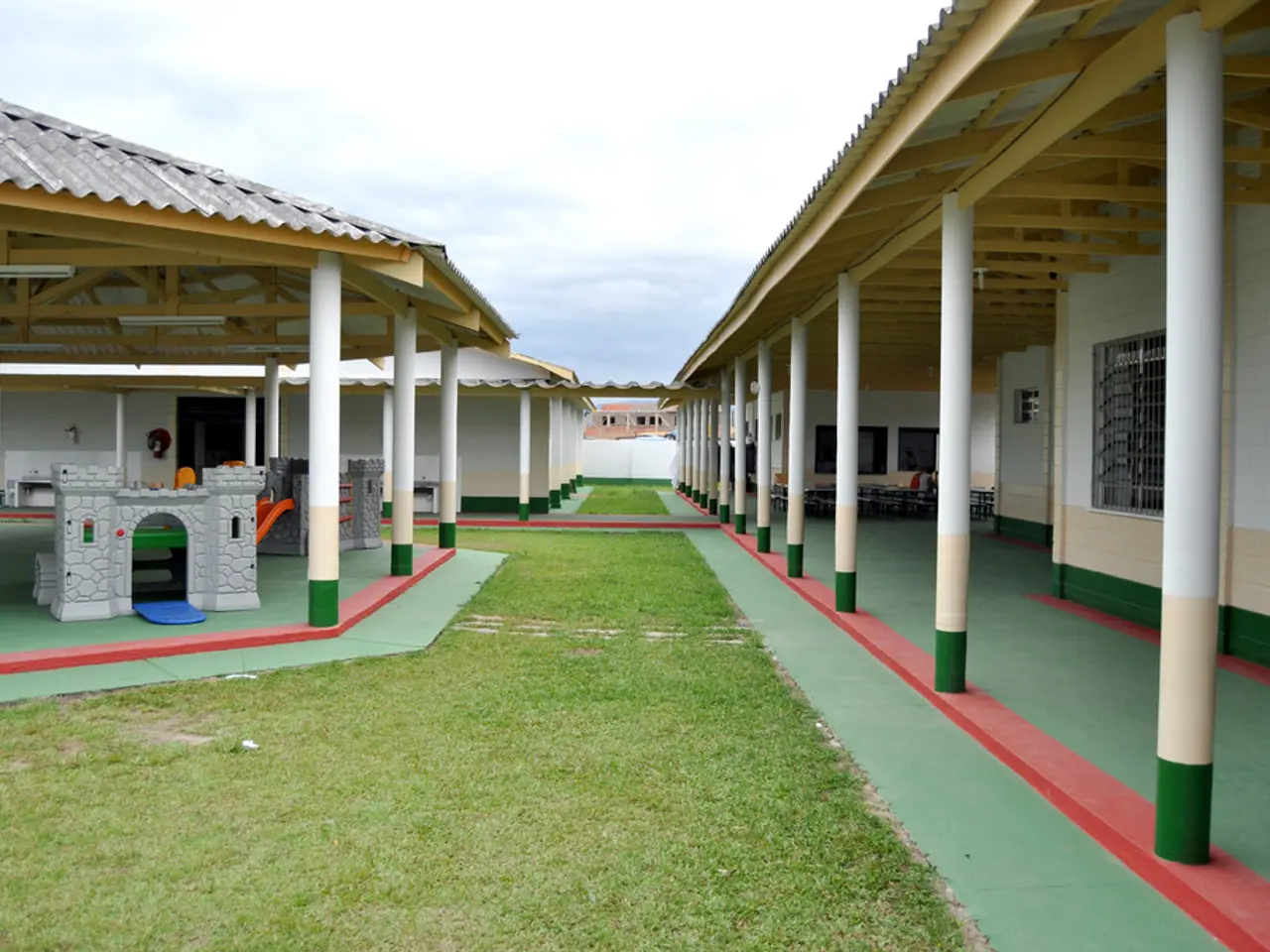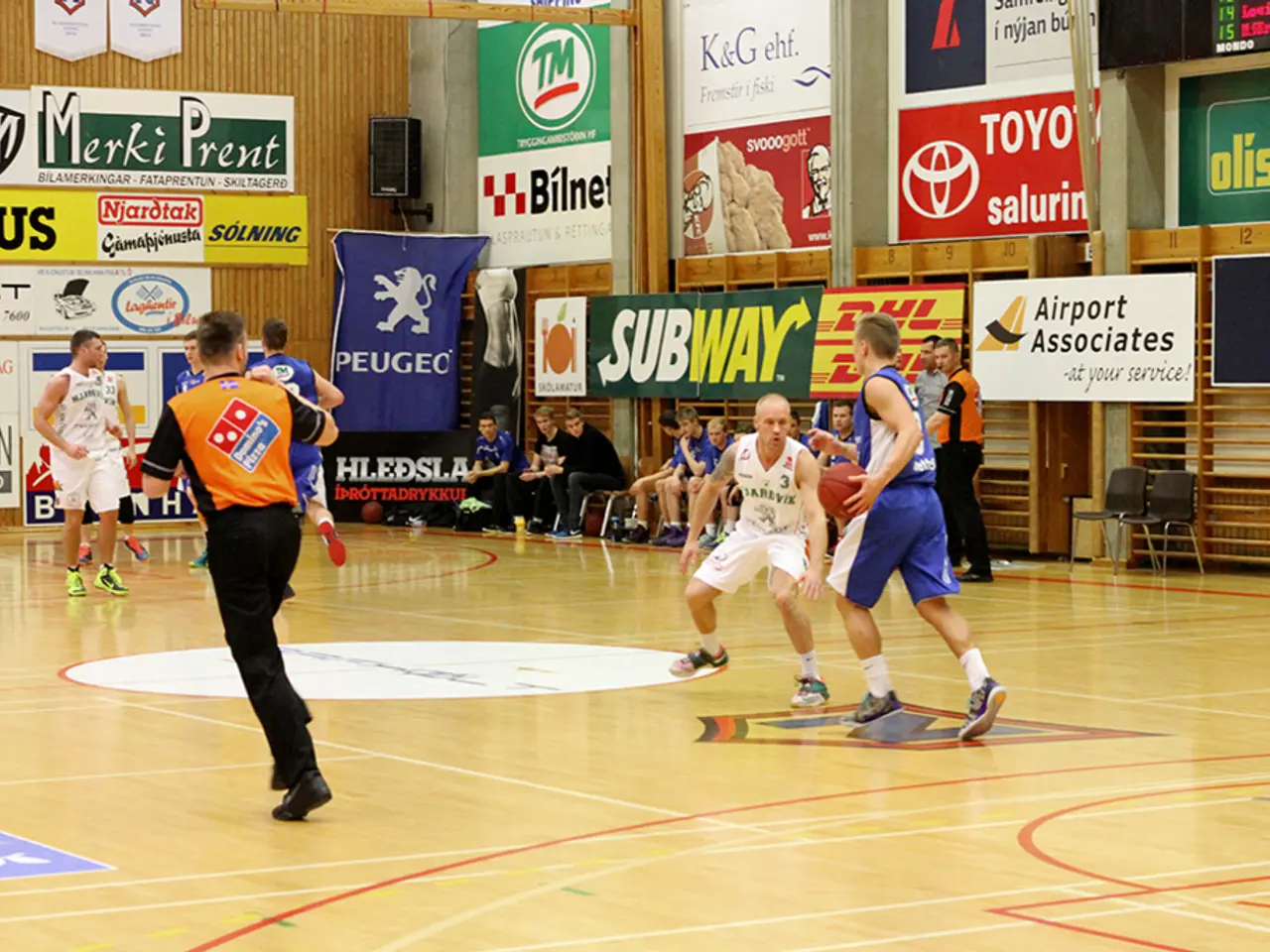State authorities need to establish additional housing options for refugees – local administrations grapple with bureaucratic disarray caused by the state government
**Headline:** SPD Parliamentarian Urges State Government to Address Refugee Support Issues in North Rhine-Westphalia
Sonja Bongers, a Social Democratic Party (SPD) state parliamentarian in North Rhine-Westphalia (NRW), has called on the state government to take immediate action to support municipalities dealing with the influx of refugees. The urgent need for action stems from the overburdening of local resources, a lack of fairness and solidarity, and the importance of ensuring successful integration for refugees and maintaining social cohesion.
Municipalities in NRW have been on the front lines of refugee reception and integration, with the arrival of significant numbers of refugees from Ukraine, Syria, Afghanistan, and other countries stretching local resources, infrastructure, and personnel to their limits. Bongers argues that it is not fair for local governments to manage this national and international challenge alone.
In addition to housing, municipalities require support for language courses, schooling, healthcare, and job placement, all critical for successful integration. Failure to provide adequate support can lead to overcrowded shelters, stretched social services, and rising tensions between refugees and host communities. Proactive state involvement helps prevent these problems.
Bongers has raised several specific issues that need immediate attention:
1. Funding Shortfalls: Municipalities often lack sufficient funds to provide adequate housing, language classes, and social services for refugees. Bongers is calling for increased financial support from the state. 2. Lack of Coordination: There may be insufficient coordination between state and local authorities, leading to inefficiencies and gaps in service provision. 3. Staffing and Expertise: Local administrations may lack the necessary staff or expertise to handle the complex tasks of refugee accommodation and integration. 4. Housing Crisis: NRW, like much of Germany, faces a housing shortage. Bongers is highlighting the urgent need for more affordable housing and temporary accommodations. 5. Integration Services: Beyond shelter, municipalities need support for integration measures like language courses, childcare, and job training programs. 6. Legal and Administrative Barriers: Bongers is pointing to bureaucratic hurdles that slow down the allocation of resources or the processing of residency permits. 7. Fair Distribution: She is advocating for a fairer distribution of refugees across municipalities to prevent overburdening certain areas.
Bongers' call to action comes as the state government's initial expansion target of 35,000 places in state facilities was not reached. Refugee facilities in NRW are still on average 89% occupied, with initial reception facilities fully utilized or partially overcrowded. Bongers finds the hesitant behaviour of the state government in addressing the inadequate reception capacities in state accommodations and the resulting issues in municipalities incomprehensible, as these problems have been known for some time.
To maintain the reception capacities of the state system, early assignments of refugees from state facilities to municipalities are necessary, according to Bongers. The state government's short-term communication about far-reaching plans to municipalities is unacceptable, she says. Bongers also finds the current funding problematic, as cities and communities are required to cover standby costs for refugee accommodation places.
An adjustment of the flat rates according to the Refugee Reception Act (FluAG) to the actual cost level is necessary, according to Bongers, to alleviate the additional burdens on municipalities. The state government abandoned its expansion target, instead of significantly expanding activities to relieve municipalities and create places in state facilities.
In conclusion, Bongers is urging the NRW state government to act out of concern for overwhelmed municipalities and to ensure that refugees receive the support they need for successful integration. She is addressing funding gaps, lack of coordination, staffing shortages, housing shortages, integration services, bureaucratic barriers, and fair distribution—issues that, if unresolved, could undermine both refugee welfare and social cohesion in North Rhine-Westphalia.
- The Social Democratic Party (SPD) state parliamentarian, Sonja Bongers, emphasizes the importance of policy-and-legislation and politics in addressing the refugee support issues in North Rhine-Westphalia, particularly in terms of financial support, coordination, staffing, housing, integration services, and a fair distribution of refugees.
- In the midst of the challenges facing municipalities in North Rhine-Westphalia due to the influx of refugees, Bongers draws attention to general-news issues such as funding shortfalls, staffing and expertise gaps, housing crises, and integration services, highlighting their potential impacts on both refugee welfare and social cohesion.








